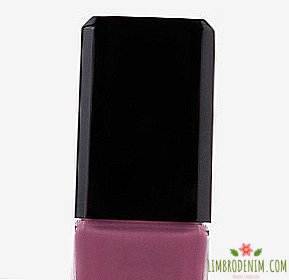Milk ran away: Women on why they stopped breastfeeding
Perhaps, there is no topic in motherhood that causes more heated debates.than breastfeeding. On the one hand, many people condemn when mothers do it in public, on the other hand, they no less condemn women who for some reason have stopped breastfeeding. The World Health Organization recommends that you feed it exclusively with breast milk for the first six months after birth, and then continue to do so with the supplements, since the milk contains the nutrients necessary for the growth and development of the infant. We have already talked about the pressure faced by young mothers, and now talked to three women who chose artificial feeding, about the reasons for this decision, about their experiences and condemnation of society.

 I really wanted to breastfeed - although my mother said to me during the entire pregnancy that there are no “nursing” women in our family. Over a period of about thirty-two to thirty-five weeks, my colostrum began to stand out (yellowish sticky breast milk that is produced by a woman at the end of pregnancy. - Approx. ed.), and by the thirty-eighth week, at the slightest emotional outburst, the T-shirt in the chest area became wet. I was overjoyed with this: I thought that if there was colostrum, I would definitely feed.
I really wanted to breastfeed - although my mother said to me during the entire pregnancy that there are no “nursing” women in our family. Over a period of about thirty-two to thirty-five weeks, my colostrum began to stand out (yellowish sticky breast milk that is produced by a woman at the end of pregnancy. - Approx. ed.), and by the thirty-eighth week, at the slightest emotional outburst, the T-shirt in the chest area became wet. I was overjoyed with this: I thought that if there was colostrum, I would definitely feed.
As a result, one day after a planned caesarean, I woke up from the fact that I was stifled by my own chest: from the third and a half size it turned into a full sixth. I got up from the hospital bed, and in the literal sense of the word poured from me: milk ran down the body, in a day it took up to five shirts and an incredible amount of breast pads. My happiness knew no bounds.
Only now the daughter could not eat this milk: I have nipples pulled in. It seemed to me that this was not a sentence, but the linings did not fit: the child did not take the breast. I decanted and called the nurses to show how to do it: I thought that it was wrong to strain the milk in three hours. After the maternity hospital, nothing has changed: the milk was poured in a stream, the pumping out and the breast pump did not help, so over time the child simply ceased to have enough milk. In total, I suffered (feeding is difficult to call) a month - and transferred the child to the mixture. I stopped being nervous, my daughter stopped starving. I can’t say what I was going through - if only very little at heart. Probably, I was lucky: in my environment there are few women who are breastfeeding, and even those quite calm people, because the wave of condemnations about artificial feeding did not touch me.
The only unpleasant moment for me associated with breastfeeding is the hungry cry of a child. Apparently, the emotional background of the young mother is very fragile, and at that time mine was very hurt. Now my daughter is three years old, and the fear that she is hungry still lives with me. Now I understand and realize what mistakes I made, and I would like to advise young mothers only one thing: never put public opinion on the same scales with the needs of the child. No need to try to entertain the ego at the expense of the child and deify breastfeeding, if the child is crying from hunger, and you can not stand the tension.
 I have three children. I breastfed my first son to one and a half years. With the second child we had a conflict over blood type, but until it was found out, I managed to breastfeed for a couple of days - it turned out that it worsened his condition. I was forbidden to feed, my son was on artificial nutrition all the time. Of course, I was worried about the problem of health: every breastfeeding benefit, advertising, materials in children's clinics shouted that only with breastfeeding a child can grow up healthy. But here's a paradox - my eldest child was often sick at the same time, and the youngest, so that with temperature, never! True, he continually had diathesis in response to different mixtures, then to adolescence the same reaction was to chocolate and citrus fruits, but in the end everything went away.
I have three children. I breastfed my first son to one and a half years. With the second child we had a conflict over blood type, but until it was found out, I managed to breastfeed for a couple of days - it turned out that it worsened his condition. I was forbidden to feed, my son was on artificial nutrition all the time. Of course, I was worried about the problem of health: every breastfeeding benefit, advertising, materials in children's clinics shouted that only with breastfeeding a child can grow up healthy. But here's a paradox - my eldest child was often sick at the same time, and the youngest, so that with temperature, never! True, he continually had diathesis in response to different mixtures, then to adolescence the same reaction was to chocolate and citrus fruits, but in the end everything went away.
Eleven years later, my husband and I decided on the third child. We were warned that the conflict over blood type intensifies with each child. And so it happened - the younger one had a very strong stage of hemolytic disease: immediately after birth he was taken to intensive care unit and a blood transfusion was done. I had a lot of antibodies in breast milk, it was impossible to feed the baby. But it turned out that the antibodies disappear from breast milk in a month, and the doctor suggested, if I want to keep breastfeeding, to decant every day as often as possible, and maybe in a month I can feed. As luck would have it, the milk was at least filled up, after birth the breast was filled like stone and increased by three sizes for sure. It was painful to touch the nipples, and pumping was the same flour. After a few days it became easier: the child was not around, the milk was not being so actively developed.
After discharge, I began to visit my son in the hospital, but it was impossible to stay there overnight. In the hospital, a crowd of moms - in white coats and clean kerchiefs - sit in the wards and wait for them twice a day to let them go to their newborns and feed them. Someone was breastfeeding, someone, like me, from a bottle. The hospital also had a special large pumping room, which most mothers visited several times a day with breast pumps in their hands.
From experiences, fatigue, and simply because I saw little of the child and, of course, did not breastfeed him, there was less and less milk. Several times a day, I still tortured my chest, trying to strain something. After discharge, some drops in the chest still persisted: I tried to immediately give the breast to my son, he chewed her indignantly and yelled wildly - I wanted to eat. Together with the household chores, which had come over with the appearance of the baby at home, I had to continue to express the milk. After a couple of days, I quit this job: there was no milk, I resigned myself to the fact that my son is an "artificial artist."
It was a pity. Still, feeding a child is an amazing process. With the first son, I never experienced any inconvenience in breastfeeding - only positive emotions and a feeling of complete unity. But I understood that it was not up to me to be able to feed two younger children. True, not everyone thought so. One of my friends, an apologist for natural childbirth, "Vedic wives", "mother-earth" and any esoteric - gave birth almost simultaneously with me, we corresponded about some mother's questions, and when I shared with her a sad story about the failed breastfeeding, she wrote with unshakable confidence: "If you really wanted this, you could keep breastfeeding."
Suddenly, this really hurt me: I thought for a long time that I didn’t often express myself in the hospital - this is generally an unpleasant, painful task, and even with a dozen other women. When the milk was almost gone, I didn’t start to express more often: it’s just unbearable to try to strain the milk out of an empty breast. To be honest, I didn’t decant at night at all, although it seemed to be necessary - I came from the hospital and fell exhausted to get up again in the morning and go to the child. I guess I didn’t do anything to keep breastfeeding. But she did everything she could.
 When I was pregnant, I had no doubt that I would breastfeed. And literally everyone around was talking about breastfeeding, so there was no other option for me. But the first days after the birth turned out to be a living hell: there was very little milk, my daughter could not take the breast, the nurses constantly came to my ward — thanks to them — and helped. I practically didn’t sleep there: I rocked, tried to feed, and ran to express. Daughter was losing weight every day, and doctors prescribed a mixture. When we checked out, we also immediately bought the mixture: I still had little milk, and my daughter lost more than 10% of the weight.
When I was pregnant, I had no doubt that I would breastfeed. And literally everyone around was talking about breastfeeding, so there was no other option for me. But the first days after the birth turned out to be a living hell: there was very little milk, my daughter could not take the breast, the nurses constantly came to my ward — thanks to them — and helped. I practically didn’t sleep there: I rocked, tried to feed, and ran to express. Daughter was losing weight every day, and doctors prescribed a mixture. When we checked out, we also immediately bought the mixture: I still had little milk, and my daughter lost more than 10% of the weight.
Since then, we have constantly used mixed feeding: twenty minutes of breast, then a mixture. I regularly put my daughter to my chest and decanted, but the milk did not increase. Near all pressed: it is necessary to do so, no - so! We bought scales and, as if possessed, we recorded daily how many my daughter scored grams (it took several years, and I still remember, for example, that she added eight hundred in the first month - so it crashed into memory). Somewhere in the third month of mixed feeding, the baby began to refuse breastfeeding: she screamed wildly until she was given a bottle. It was the most painful period since her birth - just a struggle.
In the end, after many doubts and attempts, we stopped breastfeeding. The initiator was a husband - he saw how we both suffer, and said that it was time to tie it up. At the same time, one of my friends with three children, knowing my problem, constantly wrote to me in a “sheet”: decrypt more, try, it is such a happiness - to breastfeed! When I told her about the decision, she began to actively persuade me. Doesn't a person really understand that if I decided this, then everything has already been tried? Thank God, the rest were more correct.
After refusing to breastfeed, a terrible feeling of guilt covered me. I read a lot about whether the diseases are related to the type of feeding, how children tolerate the mixture, how long they feed in other countries. For some reason, the first time in conversation with other mothers was embarrassing to say that the daughter is an “artificial woman”. Several years have passed, and now this, of course, no longer bothers me: I calmly tell everyone that I fed a child for up to three months, and this does not cause me the slightest reflection. When I hear from familiar women about such problems and see how they suffer, I try to help and encourage. I think that if everything is easy, or at least not very hard, I am breastfeeding. If the mother is suffering - this is a completely different conversation.
Photo: Freer - stock.adobe.com, Dmitry Lobanov - stock.adobe.com




